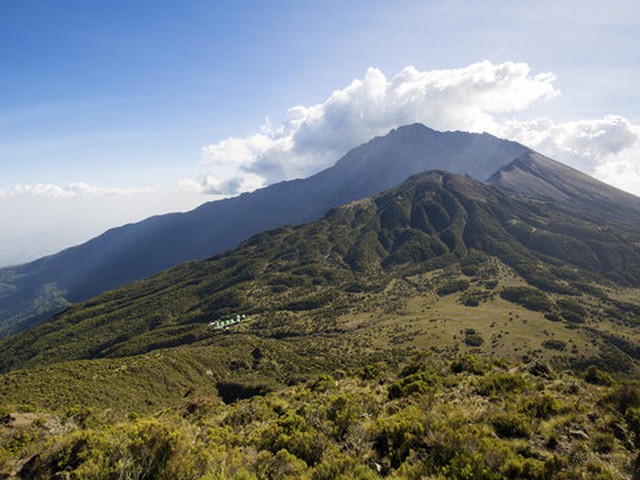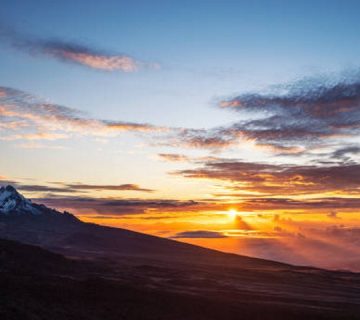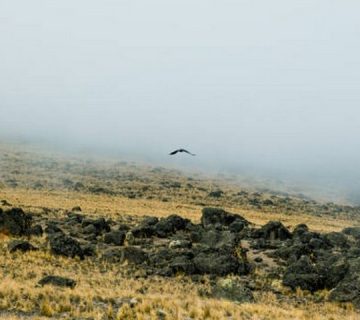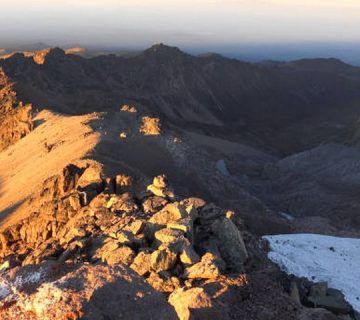Supporting Kilimanjaro Conservation Through Tourism
Nestled in the heart of Tanzania, rises the majestic Mount Kilimanjaro, the highest peak in Africa. This iconic mountain isn’t just a climber’s paradise; it’s a vibrant ecosystem that’s home to a diverse array of flora and fauna. However, the beauty and biodiversity of Kilimanjaro are under threat due to various environmental challenges. This is where tourism, specifically ecotourism, plays a crucial role. At Kilimanjaro Centre for Trekking and Ecotourism (KCTE), we believe that responsible tourism is pivotal in conserving Kilimanjaro’s ecological and cultural heritage.
The Role of Ecotourism in Conservation
Ecotourism is not just about experiencing breathtaking natural landscapes and wildlife. It’s about engaging in travel that is sensitive and beneficial to the environment. By choosing to climb Kilimanjaro with a responsible tour operator like KCTE, tourists contribute directly to the conservation efforts and the economic stability of local communities.
Sustainable Practices in Tourism
At KCTE, sustainable practices are at the core of every expedition. From minimizing waste to using energy-efficient tools and promoting the use of renewable resources, every step taken is aimed at reducing the environmental footprint of each trek. This approach not only preserves the mountain’s delicate ecosystems but also creates a model for conservation-minded tourism worldwide.
Supporting Local Communities
Tourism revenue is vital for the local communities living in the vicinity of Mount Kilimanjaro. By employing local guides, porters, and staff, KCTE ensures that the economic benefits of tourism are distributed within the community. This empowerment leads to improved living conditions and an increased motivation to engage in and support conservation efforts.
Discovering Kilimanjaro’s Ecosystems
Mount Kilimanjaro is renowned for its diverse ecosystems. As you ascend from the lush montane forests to the alpine desert and eventually the arctic summit, the changes in flora and fauna are both stark and mesmerizing. Each zone plays a critical role in the overall health of the mountain’s environment.
Flora and Fauna of Kilimanjaro
The forests of Kilimanjaro are a habitat for elephants, leopards, and buffaloes, while the alpine zone is home to unique plant species such as the giant lobelia. The ecological balance of these areas is sensitive to climatic changes and human activities, making conservation efforts crucial for their survival.
Climate Change and Its Impact
Climate change poses a significant threat to the glaciers of Kilimanjaro, with scientists predicting that they might disappear within the next few decades. This not only affects the scenic beauty of the mountain but also the biodiversity that relies on the existence of these ice caps.
Engaging in Responsible Climbing
Choosing KCTE means opting for a Kilimanjaro experience that respects the natural environment and contributes to conservation efforts. Our guided tours are designed to ensure that all activities are conducted in an environmentally sustainable manner.
Best Practices for Climbers
We encourage all climbers to follow Leave No Trace principles, which include packing out all trash, respecting wildlife, and staying on designated trails. These practices help in minimizing the ecological impact and preserving the mountain for future generations.
Eco-Friendly Climbing Initiatives
KCTE actively participates in initiatives such as tree planting and water conservation to combat the effects of global warming and environmental degradation on Kilimanjaro. By joining our climbs, you contribute directly to these conservation efforts, making your climb part of the solution.
Why Book Your Climb with KCTE?
At KCTE, we combine passion for adventure with a commitment to conservation. We offer a range of climbing packages that cater to all fitness levels and preferences, ensuring a memorable and impactful journey to the roof of Africa.
Expertise and Safety
Our team comprises experienced and certified guides who ensure your safety and enhance your understanding of the ecological and cultural significance of Kilimanjaro. Our expert knowledge and careful planning mean you’re in safe hands.
Tailored Experiences
Understanding that every climber is unique, we offer customized itineraries that match your physical ability and personal interests. Whether you’re a seasoned climber or a first-time trekker, KCTE ensures your journey is unforgettable.
Frequently Asked Questions
Q: How does climbing Kilimanjaro with KCTE support conservation?
A: A portion of our proceeds is dedicated to conservation projects, including reforestation, wildlife protection, and community education programs.
Q: What measures does KCTE take to ensure eco-friendly practices on climbs?
A: We enforce strict waste disposal policies, use solar energy, and conduct regular training for our staff on sustainable practices.
Q: Can beginners climb Kilimanjaro?
A: Absolutely! We offer routes and support for climbers of all levels. Our guides provide the necessary training and assistance to make your climb successful.
Q: How can I book a climb with KCTE?
A: Visit our website or contact our customer service directly. We’ll be delighted to help you plan your Kilimanjaro adventure.
Concluding Thoughts
Climbing Kilimanjaro offers more than just an adventure; it’s an opportunity to contribute to the preservation of one of the world’s most magnificent natural wonders. By choosing Kilimanjaro Centre for Trekking and Ecotourism, you are not just opting for an unforgettable trek; you are becoming a part of a larger movement aimed at protecting Kilimanjaro for generations to come. Join us in making a difference—book your climb today and be a part of conservation tourism on Africa’s highest peak.
Inspired to take the step? Contact KCTE, and let your adventure contribute to a greater cause. Together, we can make a difference, one step at a time.




